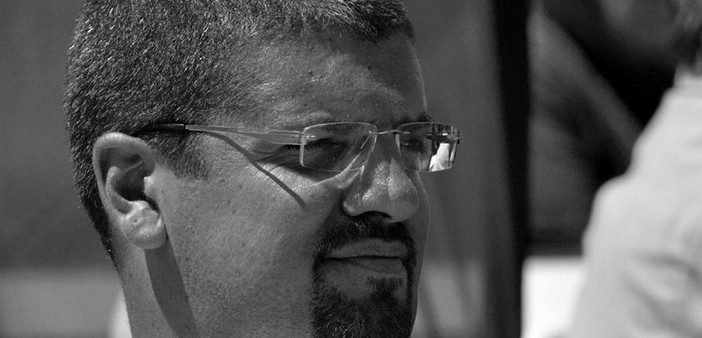Seventeen victims of terrorism and abomination. Since then, a unanimous country, from marches to gatherings, has felt the need to share concerns, fears, and a sense of revolt, as well as the communion of a people in shared trauma.
Next comes a time for questioning and proposals.
Despite the views of Valérie Pecresse and Nicolas Dupont-Aignan, Manuel Valls, during his speech at the National Assembly on January 13, 2015, set a crucial limit on the security measures to be taken following the terrorist acts: in the face of an “exceptional situation,” yes to “exceptional measures,” no to “emergency measures.”
While the distinction may seem subtle, it is nonetheless fundamental and puts an end to any hypothesis of a “French Patriot Act,” as the press now calls it.
Indeed, the Patriot Act, which constitutes a set of security measures passed by the U.S. Senate on October 2, 2001, following the September 11 attacks, and reinforced by the “military order” of November 13, 2001, allowing unlimited detention and leading to the creation of Guantanamo Bay, is primarily a state of emergency, meaning the temporary suspension of regular law.
“State of siege,” “state of emergency,” “state of exception,” and “full powers” are distinct concepts widely commented upon by jurists and still fuel debates. They share a common characteristic: the suspension of law, creating a temporary state that allows extraordinary measures by granting increased powers to the executive.
The danger is twofold: on one hand, the negation of individual freedoms, and on the other, the risk of extending the measures taken during a crisis over time and thus normalizing the absence of law.
The temptation is great to instigate or maintain a crisis or a permanent fear to which only a state of emergency seems to respond. This process allows for the acquisition of unlimited powers, placing the recourse to a state of exception on the edges of democracy. Often accompanied by a cult of the charismatic, providential leader, it marks authoritarian regimes, but not exclusively.
The Italian philosopher Giorgio Agamben writes: “The creation of a permanent state of emergency (even if it is not declared in a technical sense) has become one of the essential practices of contemporary States, including those we call democratic” (State of Exception, 2003).
Various theories justifying the state of exception emerged in the interwar period, but it was Carl Schmitt, known for his compromise with the Nazi regime, who, as early as 1922, legitimized the resort to exception by founding political decision-making power in the suspension of legal norms: “Sovereign is he who decides on the exception.”
It is not by chance that the state of exception is found at the roots of totalitarianism: on February 28, 1933, Adolf Hitler issued a decree suspending the articles of the Weimar Constitution related to individual liberties, opening the door to the worst atrocities and the Holocaust. Unrevoked throughout the Third Reich, this state of exception lasted 12 years.
In France, the state of exception is provided by Article 16 of the Constitution, when “the institutions of the Republic, the independence of the Nation, the integrity of its territory, or the execution of its international commitments are threatened in a grave and immediate manner, and the regular functioning of governmental constitutional authorities is interrupted.” It was invoked only once in history by General De Gaulle during the Algerian War. France also resorted to the establishment of a state of emergency in New Caledonia in 1984 and in Mainland France in 2005 during the riots in the suburbs.
The state of exception, in any form, is thus primarily the negation of the ability of common law to manage State affairs and to ensure civil or military security.
Yet the rule of law is constitutive of the French Republic and our democracy. It is the foundation of our republican model and the defense of individual freedoms won through hard-fought battles during a long historical process, notably marked by the Revolution of 1789.
If we reject any conflation between a practice of Islam that respects the laws of the Republic and laicism, and Islamism, we must relentlessly combat this Islamism, which is characterized by the negation of individual freedoms, foremost among them those of women.
These individual freedoms are precisely what terrorism seeks to abolish and what France, as the champion of the democratic ideal, carries.
If terrorism attacks our freedoms, it is not by renouncing our freedoms that we will fight it. Restricting our freedoms to combat terrorism is playing into terrorism’s hands and offering it a first victory on a platter!
Terrorism is the weapon of those who cannot win through an army. It fuels the fears of its enemy. It creates panic and division among its opponents, causing them to act hastily, to lose their bearings and fundamentals by legislating under the sway of emotion.
On January 13, 2015, Robert Badinter touched on the essence by analyzing our current situation: “We don’t touch the heart of democracy and the rule of law without weakening ourselves instead of strengthening.”
We are Charlie. We are defenders of freedom of expression. We are the country of Human Rights, and we carry a democratic ideal.
Suspending the rule of law, renouncing our individual freedoms, is to renounce what we are and play into the hands of terrorism. It is to grant them victory at a low cost.
So yes, we must imperatively equip ourselves with the necessary human and material resources. Yes, we must enhance methods of intelligence, control, and intervention to lead an unwavering fight against terrorism. Yes, we must durably punish the guilty. But we must in no case renounce what we are, for that would be to give victory to our opponents already, before even continuing the fight.
And if we were to renounce our rule of law and our individual freedoms, the Kouachis, the Coulibalys, the Merahs, or others like Nemmouche would have won.
David Nakache


